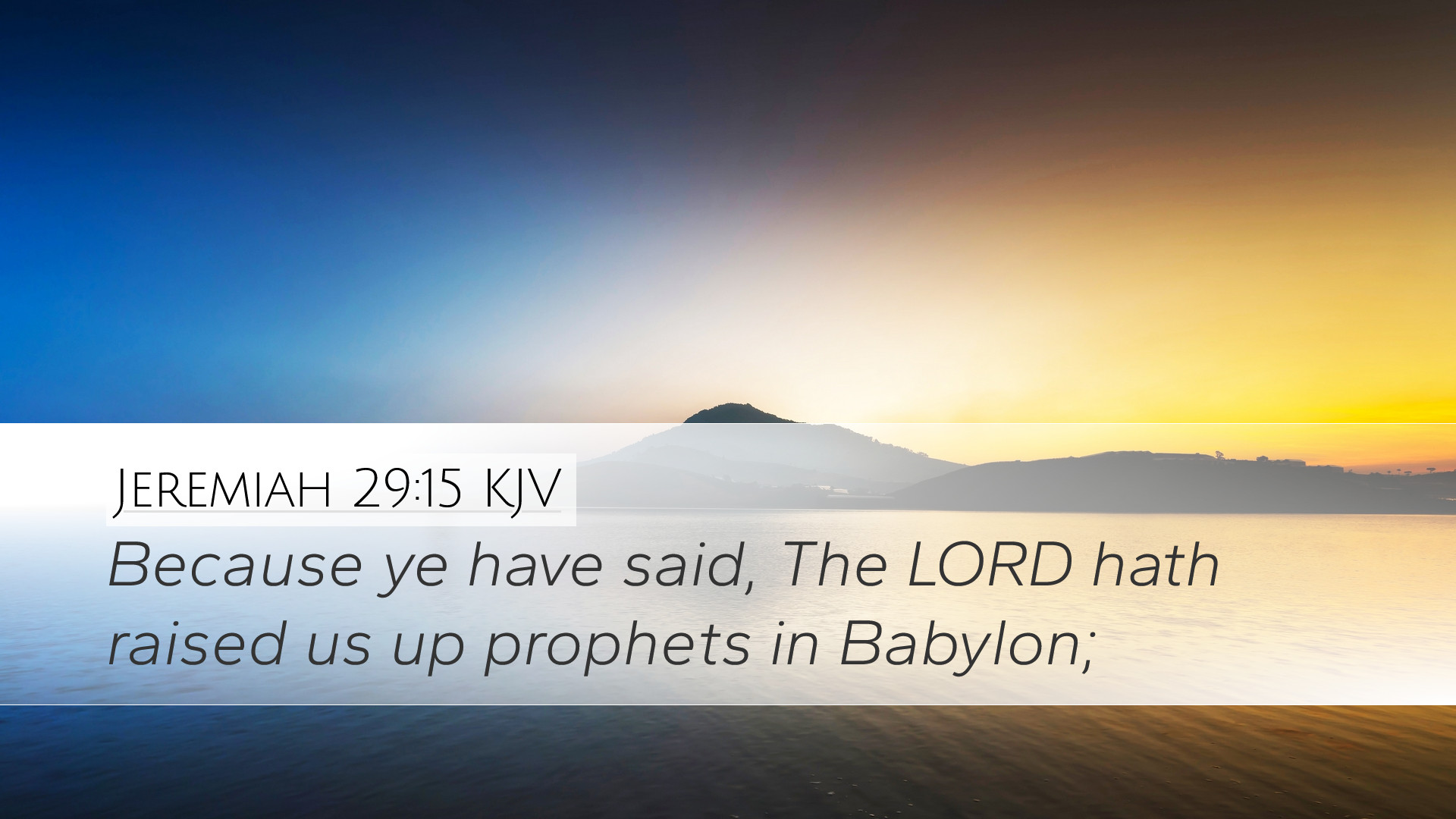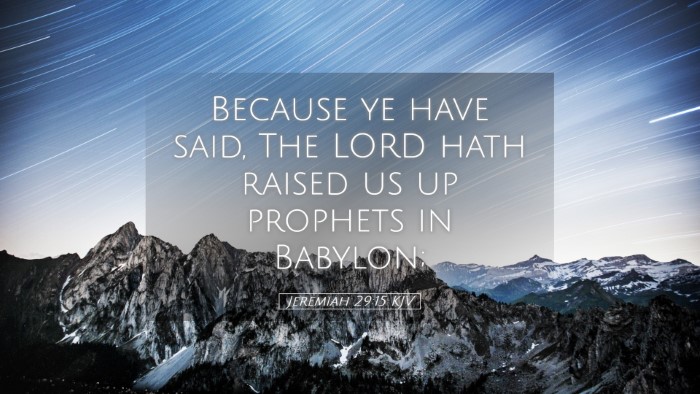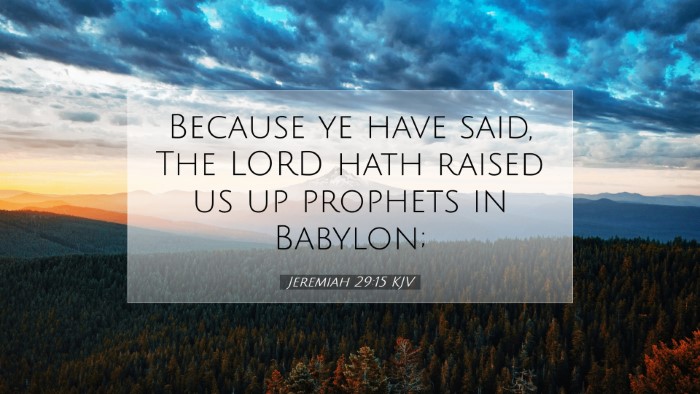Commentary on Jeremiah 29:15
Verse (Jeremiah 29:15): "Because ye have said, The Lord hath raised us up prophets in Babylon."
Introduction
In the context of Jeremiah 29, the prophet delivers a message to the exiled Israelites in Babylon. This chapter is a vital part of Jeremiah's letter to the captives, encouraging them to settle in a foreign land and prosper while maintaining their faith in God. As we delve into Jeremiah 29:15, we will explore various insights from renowned public domain commentaries that illuminate its meaning and implications.
Contextual Background
The Babylonian exile marks a pivotal moment in Israel's history. The people of Judah were taken captive following the destruction of Jerusalem. In the midst of their despair, they sought comfort in the idea that the Lord would send prophets to deliver them from captivity. However, this verse reveals a misunderstanding regarding the nature of prophetic revelation in their current situation.
Historical Insights
- Matthew Henry: Henry notes the irony in the Israelites assuming that God had anointed prophets in Babylon to prophesy peace and restoration. He emphasizes that such beliefs were grounded in misplaced expectations of immediate deliverance.
- Albert Barnes: Barnes elaborates on how the captives' desire for prophets was a reflection of their hope to return to Jerusalem. He argues that their yearning blinds them to the reality of their need to repent and seek God's favor.
- Adam Clarke: Clarke points out that not all false prophets in Babylon claimed to speak on behalf of the Lord. However, this delusion among the captives exemplifies the broader human tendency to look for comforting assurances that may not align with divine truth.
Theological Implications
This verse challenges believers to discern the nature of true and false prophecy. The captives in Babylon believed that their circumstances warranted the rise of prophets. However, the text suggests a need for careful examination of prophetic claims within the community.
False Assurance vs. Divine Truth
The proclamation of "prophets in Babylon" might indicate that the exiles were receiving assurances contrary to God's revealed plan for their repentance and restoration. It highlights a prevalent theme in Scripture: the inclination to seek out messages that align with personal desires rather than God’s will.
Hope and Expectation
This verse also reflects human hope during periods of suffering. The Israelites' longing for prophets indicates a desire for hope amidst despair. Yet, as Matthew Henry articulates, true hope can only be found in alignment with God's will, which often requires humility and acknowledgment of sin.
Practical Applications
Understanding the dynamics of Jeremiah 29:15 has profound implications for contemporary believers. Pastors, students, theologians, and scholars can draw several key lessons:
- Discernment: There is a pressing need for discernment in spiritual teaching. Believers must critically engage with messages claiming divine authority, ensuring they align with Scripture.
- Hope in Suffering: Just as the exiles were called to remain hopeful, so too are believers encouraged to seek God’s purpose in their trials without falling victim to false assurances.
- Expectation of Repentance: The call for repentance is timeless. It is essential for believers to pursue authenticity in their relationship with God rather than merely desiring comfort without change.
Conclusion
Jeremiah 29:15 serves as a clarion call for self-examination within faith communities. The honest reflection on the nature of prophetic voices and one's own desires is critical for spiritual maturity. By integrating insights from Matthew Henry, Albert Barnes, and Adam Clarke, we glean a richer understanding of how God's people ought to respond to adversity, seek divine truth, and remain steadfast in their faith amidst uncertainty.


